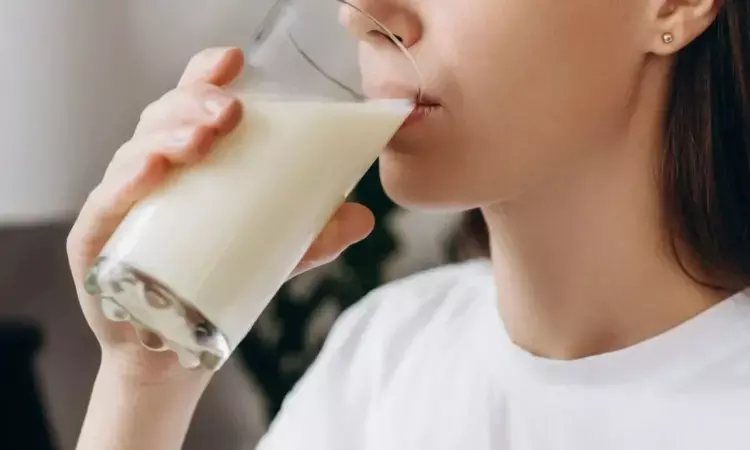- Home
- Medical news & Guidelines
- Anesthesiology
- Cardiology and CTVS
- Critical Care
- Dentistry
- Dermatology
- Diabetes and Endocrinology
- ENT
- Gastroenterology
- Medicine
- Nephrology
- Neurology
- Obstretics-Gynaecology
- Oncology
- Ophthalmology
- Orthopaedics
- Pediatrics-Neonatology
- Psychiatry
- Pulmonology
- Radiology
- Surgery
- Urology
- Laboratory Medicine
- Diet
- Nursing
- Paramedical
- Physiotherapy
- Health news
- Fact Check
- Bone Health Fact Check
- Brain Health Fact Check
- Cancer Related Fact Check
- Child Care Fact Check
- Dental and oral health fact check
- Diabetes and metabolic health fact check
- Diet and Nutrition Fact Check
- Eye and ENT Care Fact Check
- Fitness fact check
- Gut health fact check
- Heart health fact check
- Kidney health fact check
- Medical education fact check
- Men's health fact check
- Respiratory fact check
- Skin and hair care fact check
- Vaccine and Immunization fact check
- Women's health fact check
- AYUSH
- State News
- Andaman and Nicobar Islands
- Andhra Pradesh
- Arunachal Pradesh
- Assam
- Bihar
- Chandigarh
- Chattisgarh
- Dadra and Nagar Haveli
- Daman and Diu
- Delhi
- Goa
- Gujarat
- Haryana
- Himachal Pradesh
- Jammu & Kashmir
- Jharkhand
- Karnataka
- Kerala
- Ladakh
- Lakshadweep
- Madhya Pradesh
- Maharashtra
- Manipur
- Meghalaya
- Mizoram
- Nagaland
- Odisha
- Puducherry
- Punjab
- Rajasthan
- Sikkim
- Tamil Nadu
- Telangana
- Tripura
- Uttar Pradesh
- Uttrakhand
- West Bengal
- Medical Education
- Industry
Milk intake may protect against type 2 diabetes in patients with lactose intolerance: Study

USA: A recent study published in Nature Metabolism has shown a protective association between milk intake and type 2 diabetes among lactase non-persistent (LNP) individuals. They also showed a potential involvement of gut microbiota and blood metabolites in this association.
Patients with lactose intolerance are usually advised not to consume milk. However, many still consume dairy products despite experiencing gastrointestinal symptoms. The American study showed that surprisingly, this "unreasonable" strategy may have the benefit of reducing the risk for type 2 diabetes (T2D).
Lactase non-persistence is an autosomal recessive trait that leads to the down-regulation of lactase activity in the intestinal mucosa and lactose maldigestion. Lactose is present in milk and dairy products; it is a saccharide hydrolysed by the enzyme lactase-phlorizin hydrolase to glucose and galactose in the brush border of the small intestine.
Cow’s milk is frequently included in the human diet. Nutritional studies have repeatedly studied the effect of milk consumption on diabetes, among other factors, with sometimes heterogeneous results in different countries. The reason for this is presumed to be that in Asia, most people — 60%-100% — are lactose intolerant, whereas in Europe, only as much as 40% of the population has lactose intolerance.
In their paper, the authors led by Kai Luo, Department of Epidemiology and Population Health, Albert Einstein College of Medicine, Bronx, NY, USA, did not mention lactose tolerance and intolerance. Instead, they divided the study population into lactase-persistent and non-lactase-persistent participants.
The authors, using data from the Hispanic Community Health Study/Study of Latinos, revealed that in both sexes, higher milk consumption is associated with lower T2D risk in lactase non-persistent individuals (determined by a variant of the lactase LCT gene, single nucleotide polymorphism rs4988235) but not in lactase persistent individuals.
The researchers validated this finding in the UK Biobank. Further analyses showed that among LNP individuals, higher milk consumption is associated with alterations in circulating metabolites (for example, reduced branched-chain amino acid metabolites and increased indole propionate) and gut microbiota (for example, enriched Bifidobacterium and reduced Prevotella).
Many of these metabolites are related to the identified milk-associated bacteria and partially mediate the association between milk intake and type 2 diabetes in LNP individuals.
"Not being lactase-persistent does not necessarily exclude the ability to consume a certain amount of lactose," said Lonneke Janssen Duijghuijsen, PhD, a nutrition scientist at Wageningen University, Wageningen, the Netherlands.
"Studies have shown that many individuals who lack lactase can still consume up to 12 g of lactose per day — equivalent to the amount in a large glass of milk — without experiencing intolerance symptoms."
Reference:
Luo, K., Chen, G., Zhang, Y., Moon, J., Xing, J., Peters, B. A., Usyk, M., Wang, Z., Hu, G., Li, J., Selvin, E., Rebholz, C. M., Wang, T., Isasi, C. R., Yu, B., Knight, R., Boerwinkle, E., Burk, R. D., Kaplan, R. C., . . . Qi, Q. (2023). Variant of the lactase LCT gene explains association between milk intake and incident type 2 diabetes. Nature Metabolism, 6(1), 169-186. https://doi.org/10.1038/s42255-023-00961-1
Dr Kamal Kant Kohli-MBBS, DTCD- a chest specialist with more than 30 years of practice and a flair for writing clinical articles, Dr Kamal Kant Kohli joined Medical Dialogues as a Chief Editor of Medical News. Besides writing articles, as an editor, he proofreads and verifies all the medical content published on Medical Dialogues including those coming from journals, studies,medical conferences,guidelines etc. Email: drkohli@medicaldialogues.in. Contact no. 011-43720751


